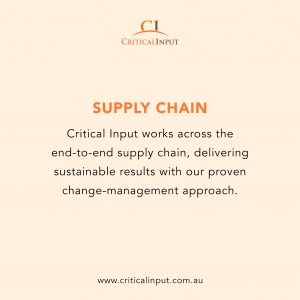Australia’s steady pair of hands critical to renewable energy transition

As economies around the world address the aftershocks of a global pandemic amidst geopolitical turmoil and an ongoing energy crisis, Australia’s role as a major global supplier of critical minerals will only increase, according to a leading Australian supply chain expert.
Speaking ahead of the The International Mining and Resources Conference (IMARC) to be held on November 2-4, 2022, Critical Input Managing Director Tim Griffiths said while Australia’s mining sector has kept Australia’s economy on an even keel throughout the pandemic and the war in Ukraine, now was not the time not to be complacent.
“Australian industry and government need to join forces to be strategic,” Tim said.
“Australia fared comparatively well during the pandemic, which has further enhanced our international geopolitical image, so increasingly, other countries will be looking toward Australia to shore up secure supply chains.”
A major consideration in the future of supply chains is sustainability, which Tim believes has moved beyond a “trend” to an expectation.
“The United States is investing in renewable energy facilities, smart grids and a robust electric vehicle industry and private companies like Telsa have set an ambitious targets,” Tim said.
“And indeed, it’s likely that Australia’s automobile and electricity sectors will be taking giant leaps towards sustainability and renewables in the short to medium-term.
“EVs and renewables require critical minerals, many of which can be found in Australia.”
The amounts of lithium, cobalt, graphene, indium and other critical minerals needed for low-carbon technologies alone are expected to increase anywhere from 100 per cent to 1,000 per cent by 2050. (The Conversation)
This accelerated pivot is placing pressure on critical mineral supply chains, which are frequently linked to environmental, social and governance (ESG) risks.
 COVID-19 exposed vulnerabilities associated with concentrated supply chains and many countries are now seeking to manage this exposure by diversifying its supply chains.
COVID-19 exposed vulnerabilities associated with concentrated supply chains and many countries are now seeking to manage this exposure by diversifying its supply chains.
“Australia is seen as a reliable supplier with significant potential to supply an array of critical minerals and battery metals,” Tim said.
“As well as having reserves in the ground, Australia’s depth of experience and expertise in mining means it’s seen as a global supplier of choice for ethically sourced critical minerals.
“So while it’s difficult for mining companies to shift gears, trade complexities between Australia, South East Asia and Russia as well as a push toward renewables are going to mean increased investment in critical minerals and a move away from coal and gas. Companies willing to pivot will be the ones prepared for the future.”
Tim also believes Australia needs to audit its own supply chains in Australia in order to maintain its competitive advantage and reputation as a stable global supplier.
“We need to de-risk our own supply chains by shortening them so we can be more agile as we traverse future challenges,” Tim said.

IMARC X Critical Input
🟠 As GOLD SPONSORS of IMARC, the CRITICAL INPUT team will be attending The International Mining and Resources Conference (IMARC) at the ICC Sydney from 2-4 November 2022.
🟠 As well as exhibiting at the show, which has been postponed three times due to Covid-19, I will be speaking about contemporary risks and rewards for the industry including supply chain management, sourcing agile project teams and curating clever procurement strategies.
🟠 Be sure to drop by our stand (#N21) if you’re in town visiting this long-awaited event.



